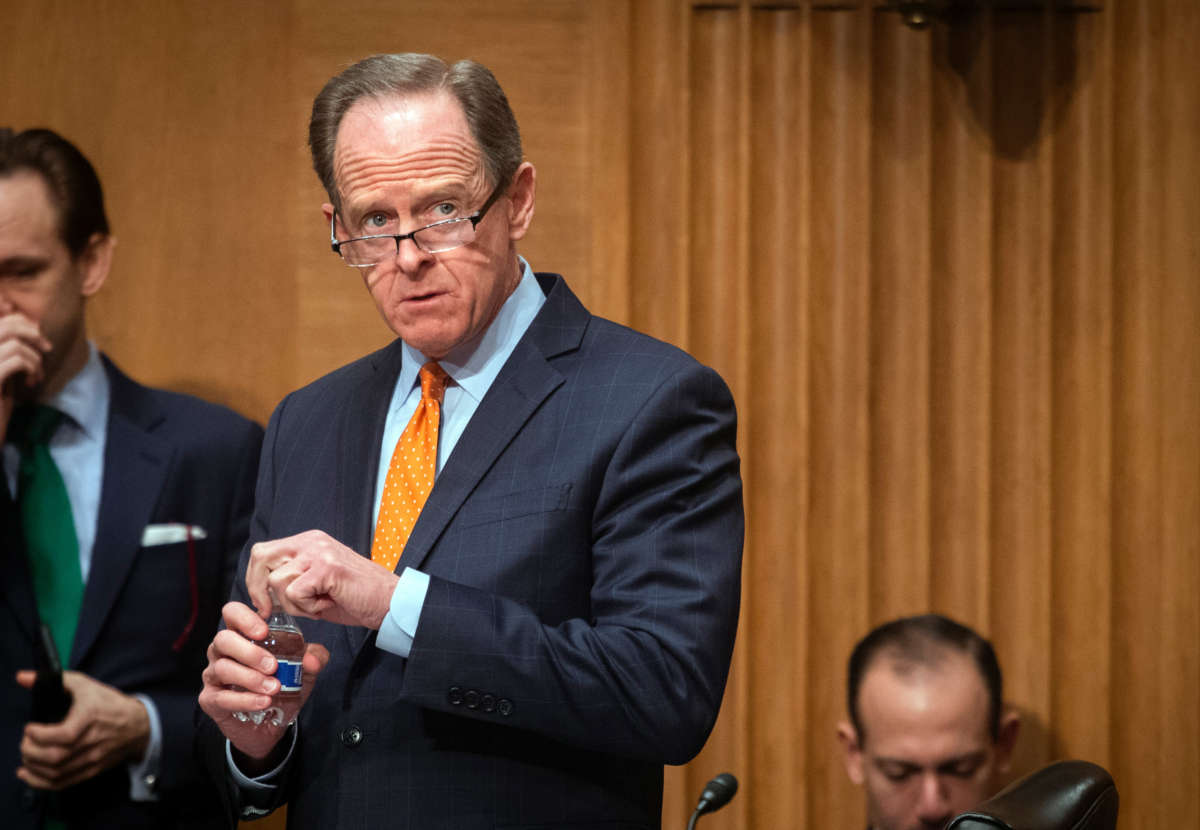Did you know that Truthout is a nonprofit and independently funded by readers like you? If you value what we do, please support our work with a donation.
On Wednesday, Republicans in the Senate voted to block a bill that would have provided health care benefits to veterans who have been exposed to toxic burn pits and chemical agents during their time in the military.
Only 55 senators voted to advance the bill, known as the Promise to Address Comprehensive Toxics (PACT) Act, failing to pass the 60-vote threshold to invoke cloture and overcome the filibuster. All 42 of the votes against advancing the bill came from Republicans; only seven GOP members voted to pass the proposal that advocates said would have been a life-saving victory for veterans.
Advocates for the bill expressed rage and frustration that Republicans blocked the legislation, which Sen. Pat Toomey (R-Pennsylvania) claimed they opposed because it contained unrelated spending. Advocates for the bill quickly dismissed those claims.
“This eleventh-hour act of cowardice will actively harm this country’s veterans and their families,” said Sen. Jon Tester (D-Montana), Chair of the Senate Veterans’ Affairs Committee. “Republicans chose today to rob generations of toxic-exposed veterans across this country of the health care and benefits they so desperately need — and make no mistake, more veterans will suffer and die as a result.”
Veterans who were exposed to toxins like Agent Orange or smoke from burn pits, which were commonly used to dispose of waste in Iraq, Afghanistan, and other places, are susceptible to developing respiratory conditions and certain rare cancers.
But veterans have had trouble getting coverage for treating these conditions. Department of Veterans Affairs (VA) Deputy Executive Director of policy and procedures Laurine Carson told the House in a 2020 hearing that, of the 12,582 veterans who filed claims for these conditions, only 2,828 were approved — or about 20 percent. Overall, the military has estimated that 3.5 million U.S. veterans were exposed to toxins from burn pits, which the military says it no longer uses.
The bill would add nearly two dozen conditions to the VA’s list of conditions related to veterans’ time in the military and open the door for veterans to receive care and disability benefits for those illnesses. It would also provide new benefits for veterans who were exposed to chemicals like Agent Orange, a chemical weapon that inflicts severe full-body effects that the U.S. used in the Vietnam War. An international tribunal later found the use of the chemical to be an illegal act of aggression and a crime against humanity.
The bill passed the House earlier this month, and a previous version of the bill had passed the Senate in June by an 84 to 14 vote. At the time, Senate Majority Leader Chuck Schumer (D-New York) called it the “greatest advance in veterans’ health care in decades.”
Host of The Daily Show Jon Stewart, who lobbied for the bill, expressed frustration that the bill was blocked. “Not one of these stab vets in the back Senators should get to leave for the Summer” until they pass the bill, Stewart tweeted. “Not one.”
Commentators speculated that Republicans voted against the bill on Wednesday night as a knee-jerk reaction to Democrats’ announcement of a rare consensus on their long-vaunted reconciliation bill, which came less than an hour before the vote.
“Republicans decide to take dying vets hostage because Democrats want a minimum tax on corporations and energy investments,” said American Prospect executive editor David Dayen on Twitter. “They’ll give you a lot of other reasons, Toomey’s latest is a shift from discretionary to mandatory spending that was already in the bill before. But the real reason is ‘[Sen.] Joe Manchin made us mad.’”
Media that fights fascism
Truthout is funded almost entirely by readers — that’s why we can speak truth to power and cut against the mainstream narrative. But independent journalists at Truthout face mounting political repression under Trump.
We rely on your support to survive McCarthyist censorship. Please make a tax-deductible one-time or monthly donation.
